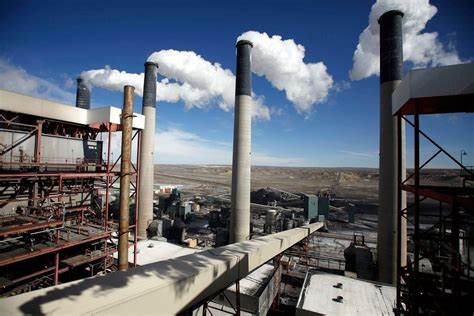Table of Contents
Introduction of Global Warming
Exploring the Causes and Effects of worldwide Warming: The main cause of global warming is the burning of fossil fuels such as coal, oil, and natural gas, which releases greenhouse gases (primarily carbon dioxide) into the atmosphere. These gases trap heat from the sun, causing the Earth’s temperature to rise. Global Warming causes include deforestation, agriculture, and industrial processes.
The effects of worldwide warming include rising sea levels, extreme weather events, loss of biodiversity, and disruption of ecosystems and agriculture. It also exacerbates health issues such as air pollution, the spread of disease, and heat stress. If left unchecked, worldwide warming is likely to have severe and irreversible consequences for the planet and human civilization.
What Is Global Warming?
Global warming is the gradual increase in the overall temperature of the Earth’s atmosphere, primarily caused by the burning of fossil fuels, which releases greenhouse gases into the atmosphere. These gases trap heat from the sun, causing the Earth’s temperature to rise in worldwide warming. Other human activities, such as deforestation and industrial processes, also contribute to global warming. Climate change and worldwide warming are often used interchangeably but climate change refers to the long-term changes in the Earth’s climate, including temperature, precipitation, and weather patterns, while worldwide warming refers specifically to the increase in the Earth’s average surface temperature
How Are Emissions Contributing to Global Warming?
Emissions from human activities, particularly the burning of fossil fuels, are the main driver of worldwide warming. When fossil fuels such as coal, oil, and natural gas are burned, they release greenhouse gases, primarily carbon dioxide, into the atmosphere. These gases trap heat from the sun, causing the Earth’s temperature to rise worldwide Warming.
Carbon dioxide is the most significant greenhouse gas responsible for worldwide warming. However, other greenhouse gases such as methane, nitrous oxide, and chlorofluorocarbons (CFCs) also contribute to worldwide warming. Methane is released during the production and transport of coal, natural gas, and oil, as well as through agricultural activities such as livestock farming. Nitrous oxide is released through the use of fertilizers in agriculture and industrial activities. CFCs are used in refrigeration, air conditioning and industrial processes, and were also found in certain aerosol sprays, and have been banned since the 1987 Montreal Protocol due to their ozone depleting properties in global Warming.
Reducing emissions in worldwide warming is essential to slowing down the pace of global warming. This can be done by transitioning to clean energy sources such as wind and solar power, increasing energy efficiency, and implementing policies to reduce greenhouse gas emissions in worldwide Warming.
Mitigation Strategies to Reduce Global Warming ?
There are several strategies that can be implemented to reduce emissions in global warming and mitigate the effects of worldwide Warming. Some of the most effective strategies include:
- Transitioning to clean energy: Replacing fossil fuels with clean energy sources such as wind, solar, and hydro power can significantly reduce greenhouse gas emissions in worldwide Warming.
- Energy efficiency: Improving energy efficiency in buildings, transportation, and industry can reduce the amount of energy needed to power our lives and decrease emissions in worldwide Warming.
- Carbon capture and storage: Carbon capture and storage technologies can capture carbon dioxide emissions in worldwide Warming from power plants and other industrial sources before they are released into the atmosphere, and store them underground.
- Electric vehicles: Electric vehicles can significantly reduce emissions in worldwide Warming from transportation.
- Planting Trees and Forest restoration: Trees absorb carbon dioxide from the atmosphere and store it as carbon in their biomass. Planting trees, and restoring degraded forests can help to remove carbon from the atmosphere into the worldwide Warming, as well as providing other benefits such as biodiversity conservation and watershed protection in worldwide Warming.
- Sustainable Agriculture: Adopting sustainable agricultural practices can reduce emissions in worldwide warming from the agricultural sector, and also improve soil health, water efficiency and the resilience of crops.
- Government policies and regulations in worldwide warming: Governments can set emissions targets and implement policies and regulations to reduce emissions in global Warming and encourage the development and adoption of clean energy and energy efficiency technologies in global warming.
- International cooperation in worldwide warming: Combating climate change requires cooperation and collaboration between countries to share knowledge, technology, and resources to reduce emissions in worldwide warming and adapt to the impacts of worldwide Warming.
It’s worth noting that no single solution will be sufficient, and a combination of these strategies will be needed to address the complexity and scale of the climate change challenge in worldwide Warming.
What is benifit of Global Warming?
It is important to note that the overwhelming majority of scientific evidence indicates that worldwide warming primarily has negative effects on the environment and human society. The effects of worldwide warming, such as rising sea levels, extreme weather events, loss of biodiversity, and disruption of ecosystems and agriculture, can have severe and irreversible consequences for the planet and human civilization.
That being said, some possible benefits of global warming could be:
- Increased agricultural productivity in certain regions: Warmer temperatures and increased carbon dioxide in the atmosphere may lead to increased growth and productivity in certain crops, particularly in higher latitudes in worldwide warming.
- Reduced heating costs: Warmer temperatures may reduce the need for heating in some regions in global warming, potentially resulting in cost savings for individuals and businesses.
- Improved shipping lanes: As sea ice melts in the Arctic, new shipping lanes may open in global warming, potentially reducing the cost and time required for international shipping.
- Increased tourism: Warmer temperatures may make some destinations more attractive for tourism, potentially resulting in economic benefits for local communities in global warming.
However, it’s important to note that these benefits are likely to be outweighed by the negative consequences of worldwide warming, and that the most effective way to address worldwide warming is to reduce emissions and implement strategies to mitigate its effects.
FAQs on Global Warming.
- What is the main cause of worldwide warming? The main cause of global warming is the burning of fossil fuels, such as coal, oil, and natural gas, which releases greenhouse gases (primarily carbon dioxide) into the atmosphere. These gases trap heat from the sun, causing the Earth’s temperature to rise.
- How is worldwide warming affecting the Earth? The effects of global warming include rising sea levels, extreme weather events, loss of biodiversity, and disruption of ecosystems and agriculture. It also exacerbates health issues such as air pollution, the spread of disease, and heat stress. If left unchecked, worldwide Warming is likely to have severe and irreversible consequences for the planet and human civilization.
- What can be done to stop global warming? Reducing emissions is essential to slowing down the pace of global warming. This can be done by transitioning to clean energy sources such as wind and solar power, increasing energy efficiency, and implementing policies to reduce greenhouse gas emissions in worldwide warming.
- Are human activities the only cause of global warming? Human activities, particularly the burning of fossil fuels, are the main driver of global warming. However, there are also natural causes of warming, such as volcanic eruptions and changes in solar radiation. But the majority of the warming observed over the past century is due to human activities.
- How much has the Earth’s temperature risen in global warming? The Earth’s average surface temperature has risen about 1.8 degrees Fahrenheit (1 degree Celsius) since the late 19th century, with most of the worldwide warming occurring in the last few decades.






